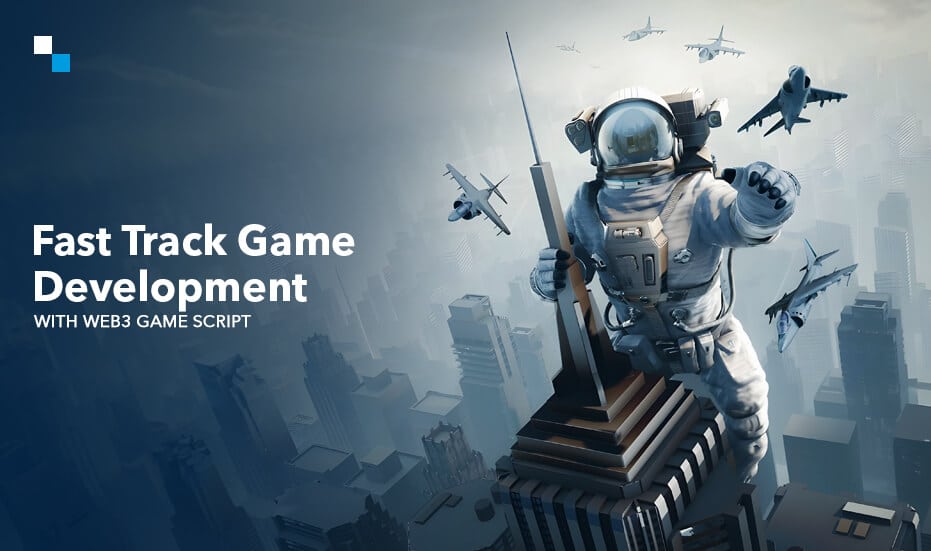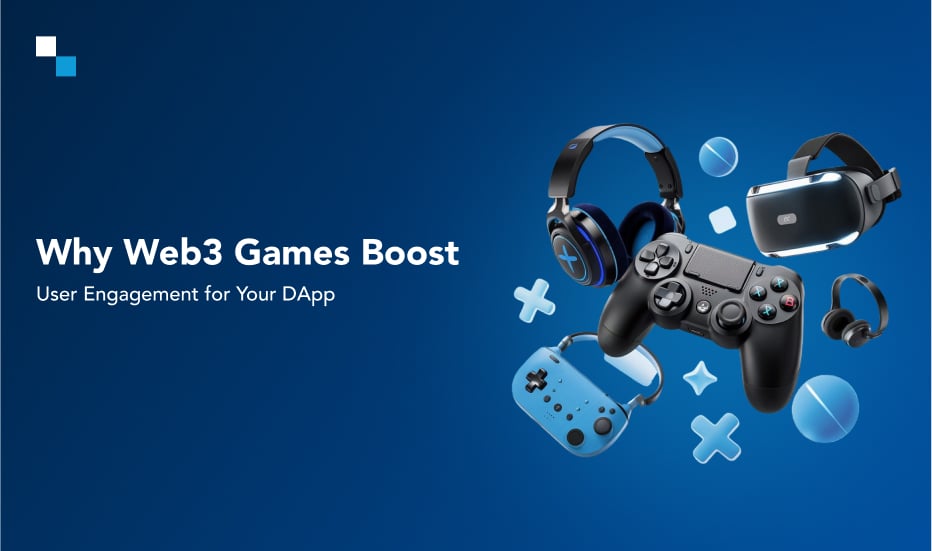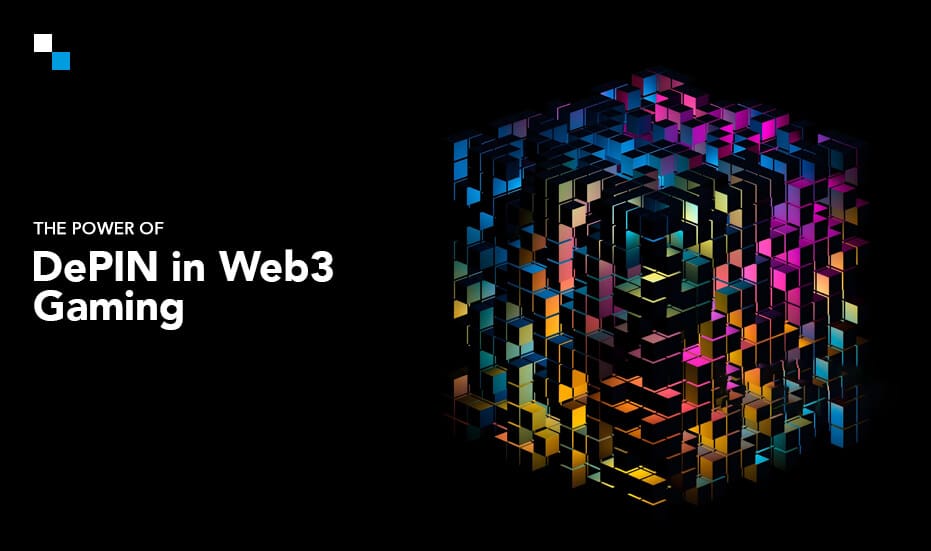
Generative AI in Drug Discovery: Top 10 Use Cases in 2024
September 12, 2024
Gold Tokenization Case Study: How Antier Assisted a Global Bank with Its Tokenization Endeavor
September 12, 2024In today’s fast-evolving gaming landscape, Web3 games are taking center stage. By integrating decentralized technologies and blockchain, Web3 gaming offers enhanced ownership, player control, and transparency. Developers and studios must keep up with this revolution by accelerating their game development processes to deliver these cutting-edge games quickly and efficiently. Here, we discuss how to fast-track your Web3 game development while ensuring high-quality gameplay and robust design.
Understanding the Core of Web3 Game Development
Web3 game development involves integrating decentralized technologies like blockchains, NFTs (Non-Fungible Tokens), and cryptocurrencies. These elements allow gamers to truly own their in-game assets and participate in decentralized economies. This shift fundamentally changes how games are created, marketed, and monetized. Therefore, developing a Web3 game requires expertise in blockchain technology, cryptography, tokenomics, and advanced game development skills.
Key Elements of Web3 Game Development
- Blockchain Integration
The blockchain serves as the foundation of Web3 games. It enables decentralized game economies, verifiable ownership of in-game assets, and tamper-proof game logic. Choosing the right blockchain platform (e.g., Ethereum, Solana, or Polygon) is crucial for the scalability and security of your game. - Smart Contracts
Smart contracts automate various processes within the game, such as asset transfers, reward distribution, and governance. These are self-executing contracts with code that defines the rules and penalties of an agreement. For example, if a player earns a specific achievement, a smart contract could automatically reward them with in-game tokens or items. - NFT Integration
NFTs have revolutionized digital ownership in gaming. Players can buy, sell, and trade unique digital assets (e.g., characters, skins, weapons) within the game or on NFT marketplaces. Incorporating NFTs adds a layer of customization and investment opportunity, making the game more appealing to both gamers and investors. - Tokenomics
Designing an efficient tokenomics model is essential for the success of any Web3 game. Tokens are often used to reward players for their achievements and allow for the trading of assets within the game. Developing a sustainable token economy ensures long-term player engagement and incentivizes user participation. - Decentralized Governance
Decentralized Autonomous Organizations (DAOs) can be implemented to allow the player community to vote on game updates, feature releases, or balance changes. This gives the players a more active role in shaping the game’s future and ensures that their voices are heard in the decision-making process.

How Game Scripts Can Run Your Game Development on Steroids
Game development is a complex and multifaceted process that requires extensive planning, creativity, and technical skill. One of the most crucial elements in speeding up this process is the use of game scripts. These scripts act as blueprints, automating various elements of game logic, character behavior, interactions, and more. By using well-structured game scripts, developers can dramatically accelerate the production timeline while ensuring consistency and functionality across different aspects of the game.
Let’s explore how game scripts can put your development process on steroids, helping you save time, reduce errors, and create more dynamic gameplay experiences.
What Are Game Scripts?
Game scripts are sets of instructions written in programming languages like C#, Python, JavaScript, or Lua that define how various elements in the game will behave. These scripts automate many aspects of gameplay, including:
- Character movement and interactions
- AI behavior
- Physics and animations
- Combat mechanics
- Environmental changes
- User interface (UI) responses
Scripts enable developers to manage complex behaviors and game states without manually coding each action. When applied strategically, they can reduce repetitive tasks, streamline game development, and enable real-time changes without needing to alter the core game engine.
The Power of Game Scripts in Accelerating Development
1. Automation of Repetitive Tasks
One of the greatest advantages of game scripts is the ability to automate repetitive tasks. Tasks like character movement, interactions with objects, and user interface responses can be scripted once and reused across different game levels or scenes. This eliminates the need for developers to reprogram actions repeatedly, significantly speeding up the process.
For example, in a platformer game, instead of coding each enemy’s behavior separately, you can write a single script that governs how all enemies behave. Whether it’s attacking, dodging, or retreating, the script automates these tasks, saving hours of manual coding.
2. Quick Prototyping and Iteration
Game scripts allow developers to quickly create prototypes and test different gameplay ideas. If a certain feature or mechanic doesn’t work as expected, it’s easy to tweak the script without affecting the entire game. This flexibility helps in the rapid iteration of ideas, reducing the time spent on trial and error.
For instance, if you’re developing a shooter game and want to test different weapon behaviors, you can write scripts to modify how each weapon fires, reloads, or impacts the environment. By adjusting the script, you can instantly see how changes affect gameplay without having to rewrite the entire codebase.
3.Enhanced AI Development
AI plays a critical role in modern games, creating a dynamic and immersive player experience. However, AI programming can be complex and time-consuming. By using game scripts, developers can build intelligent, responsive AI systems more efficiently.
Scripts allow you to define AI behaviors such as patrolling, attacking, and reacting to player actions. For example, you can write a script that defines how enemies detect the player based on proximity or sound. This script can then be applied to multiple AI agents, ensuring consistent behavior across different game levels.
4. Streamlined Collaboration
Game development is often a collaborative process involving multiple team members, including designers, programmers, and animators. Game scripts serve as a universal language that bridges the gap between these disciplines. Designers can easily understand and modify scripts without needing deep programming knowledge, while programmers can focus on more complex tasks.
This collaboration reduces bottlenecks in the development pipeline and ensures that the team can work in tandem, speeding up the overall production cycle. Designers can adjust mechanics, create new features, and fix issues independently, without having to wait for programmers to implement every change.
5. Real-Time Testing and Debugging
Debugging can be one of the most time-consuming aspects of game development. With game scripts, testing and debugging become faster and more efficient. Scripts allow for real-time testing, meaning you can adjust variables, tweak mechanics, or introduce new features while the game is running.
This instant feedback loop helps developers identify bugs, balance gameplay mechanics, and make necessary adjustments without extensive downtime. For example, you can use a script to monitor character stats during gameplay, such as health, speed, or damage output, allowing you to fine-tune these attributes in real time.
6. Scalability and Reusability
A major benefit of using game scripts is scalability. As your game grows in complexity, scripts can easily be reused across different game elements. Whether you’re developing a single-player RPG or a multiplayer shooter, the same scripts can be adapted for different purposes, reducing the need for additional coding.
For instance, in an open-world game, you can write a script for environmental interactions such as doors opening or objects being picked up. Once written, this script can be applied to every door and object in the game world, scaling the functionality across a vast landscape without requiring new code for each instance.
7. Improved Player Experience
Game scripts also contribute to a more polished and dynamic player experience. Scripts enable real-time responses to player actions, ensuring that the game feels intuitive and reactive. For example, a script might control how the game camera shifts based on player movement, or how NPCs react to certain player decisions.
These scripts help create a more immersive and engaging gameplay experience, which in turn can boost player retention and satisfaction. Whether it’s through fluid combat mechanics or seamless environmental transitions, scripts help make the game world feel alive and responsive.
Choosing the Right Scripting Language for Your Game
Different scripting languages are suited to different game engines and development needs. Here are some popular choices:
- C#: Widely used with Unity, one of the most popular game engines for both indie and AAA games.
- Python: Known for its simplicity and readability, often used in prototyping and AI behavior.
- Lua: Lightweight and versatile, commonly used in games like World of Warcraft for modding and customization.
- JavaScript: Integrated with engines like Babylon.js and Three.js, popular for browser-based games.
Choosing the right scripting language depends on your game engine, target platform, and team expertise. The key is to select a language that allows for rapid development while maintaining performance and scalability.
Which Web3 Game Scripts Can Be Your Cash Cows
1. Aviator Game Script
Aviator is an engaging crash-style game where players place bets on a rising multiplier linked to a virtual airplane. The objective is to cash out before the plane flies away, creating a thrilling experience filled with risk and excitement. Its simplicity and fast-paced nature make it popular among players seeking quick wins.
2. BC Game Limbo
BC Game Limbo is a unique gambling game where players bet on whether a randomly generated number will land within a specific range. Players can adjust their risk levels by choosing different multipliers, making it a game of strategy as well as luck. The game’s vibrant interface and community-driven features enhance the overall experience.
3. Crypto Crash Game
Crypto Crash is another crash-style game where players bet on a continuously rising multiplier. The goal is to cash out before the multiplier crashes down to zero. This game is designed to evoke adrenaline and excitement, appealing to players who enjoy high-stakes gambling with the potential for significant rewards.
4. Stake Clone
Stake clones replicate the popular Stake casino platform, offering a wide array of games including slots, table games, and sports betting. These clones often incorporate cryptocurrency transactions, providing a seamless and modern gambling experience. They aim to capture the essence of Stake’s success while adding unique features to attract players.
5. Pixels Game
Pixels Game is a creative and interactive gaming platform where players can engage in various mini-games and challenges. The game emphasizes user-generated content, allowing players to create and share their own pixel art games. This fosters a vibrant community where creativity and collaboration thrive.

6. The Sandbox
The Sandbox is a decentralized virtual world that empowers players to create, own, and monetize their gaming experiences using blockchain technology. Players can build 3D environments, design games, and trade virtual assets as NFTs. The platform encourages creativity and offers a unique economy where players can earn from their creations.
7. F1 Delta Time
F1 Delta Time is a blockchain-based racing game that allows players to own, trade, and race officially licensed Formula 1 cars. Players can compete in various races and events, earning rewards and improving their car collections. The game combines the thrill of racing with the ownership of digital assets, appealing to both racing fans and gamers.
8. Roblox Game
Roblox is an online platform that enables users to create and play games created by other users. It features a vast library of user-generated games across various genres, fostering creativity and collaboration. Players can customize their avatars and engage in social experiences, making it a popular choice for gamers of all ages.
9. Hamster Kombat
Hamster Kombat is a hyper casual telegram game where players mint coins by tapping hamster characters. The game features unique characters, air drops, and minigames. Players can compete on leaderboard rankings, making it a light-hearted and entertaining gaming experience.
10. Gods Unchained
Gods Unchained is a tactical card game that combines strategy with blockchain technology. Players collect and trade cards, build decks, and engage in competitive matches. The game emphasizes true ownership of in-game assets, allowing players to buy, sell, and trade their cards as NFTs. Its strategic gameplay and community-driven elements make it a standout in the blockchain gaming space.
Additional Factors That Are Essential For The Success Of Your Web3 Game
The Tokenomics
Tokenomics plays a significant role in the success of a Web3 game. Your in-game currency must have intrinsic value and utility to engage players and sustain an active player economy. Below are key considerations for building a robust tokenomics system:
- In-Game Rewards: Players should be able to earn tokens through achievements, completing challenges, or winning matches. These tokens should have real-world value or be exchangeable for NFTs.
- Utility Tokens: Tokens should not only serve as a form of currency but also unlock special in-game features, upgrades, or governance rights.
- Burn Mechanism: Introducing a token-burning mechanism can help stabilize the token’s value by reducing supply and creating scarcity. Players may be required to burn tokens for special in-game privileges or upgrades.
- Liquidity Pool: Establishing a liquidity pool allows players to trade tokens with one another, creating a vibrant in-game economy.
Ensuring Security in Web3 Game Development
Security is paramount in Web3 game development due to the involvement of digital assets and real-world value. A breach could result in the loss of player assets or tokens, damaging your game’s reputation and eroding user trust.
- Smart Contract Audits: Always conduct thorough audits of your smart contracts to ensure they are free of vulnerabilities and exploits.
- User Authentication: Implement multi-factor authentication (MFA) to prevent unauthorized access to player accounts and wallets.
- Decentralized Storage: Utilize decentralized storage solutions like IPFS (InterPlanetary File System) to store game assets securely, rather than relying on centralized servers that are more susceptible to hacking.
Conclusion
As the Web3 gaming landscape continues to evolve, Antier stands at the forefront of innovation and rapid development. Our comprehensive suite of game scripts, including popular options like Aviator, BC Game Limbo, and Crypto Crash, enables swift deployment of engaging blockchain-based games.
Antier’s unique strengths lie in our:
- Expertise in blockchain integration and smart contract development
- Robust tokenomics design capabilities
- Advanced security measures to protect player assets
- Scalable and customizable game scripts
- Ability to create immersive, player-centric experiences
By choosing Antier, you’re not just getting a game script – you’re partnering with a team that understands the intricacies of Web3 gaming. From NFT integration to decentralized governance, we offer end-to-end solutions that set your game apart in the competitive blockchain gaming market.
Our expert team is equipped with cutting-edge technology and industry-leading expertise to bring your gaming vision to life. Whether you’re looking to launch an Aviator-style game, a Stake clone, or a unique blockchain-based concept, we have the tools and experience to make it happen.
Don’t miss out on the Web3 gaming revolution. Contact Antier now to schedule a consultation and discover how our game scripts can accelerate your development process, reduce costs, and create engaging player experiences. Let’s build the future of gaming together!



